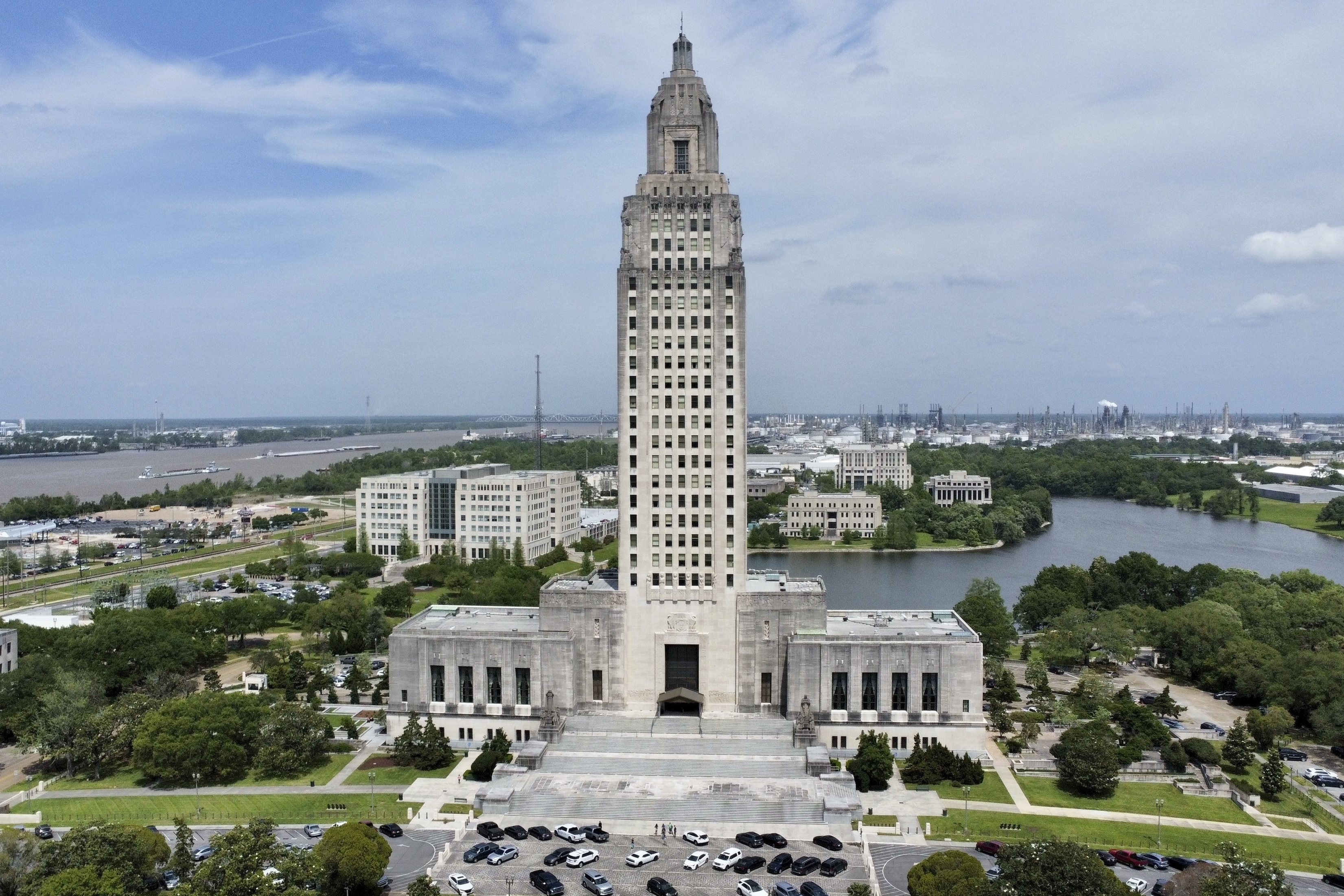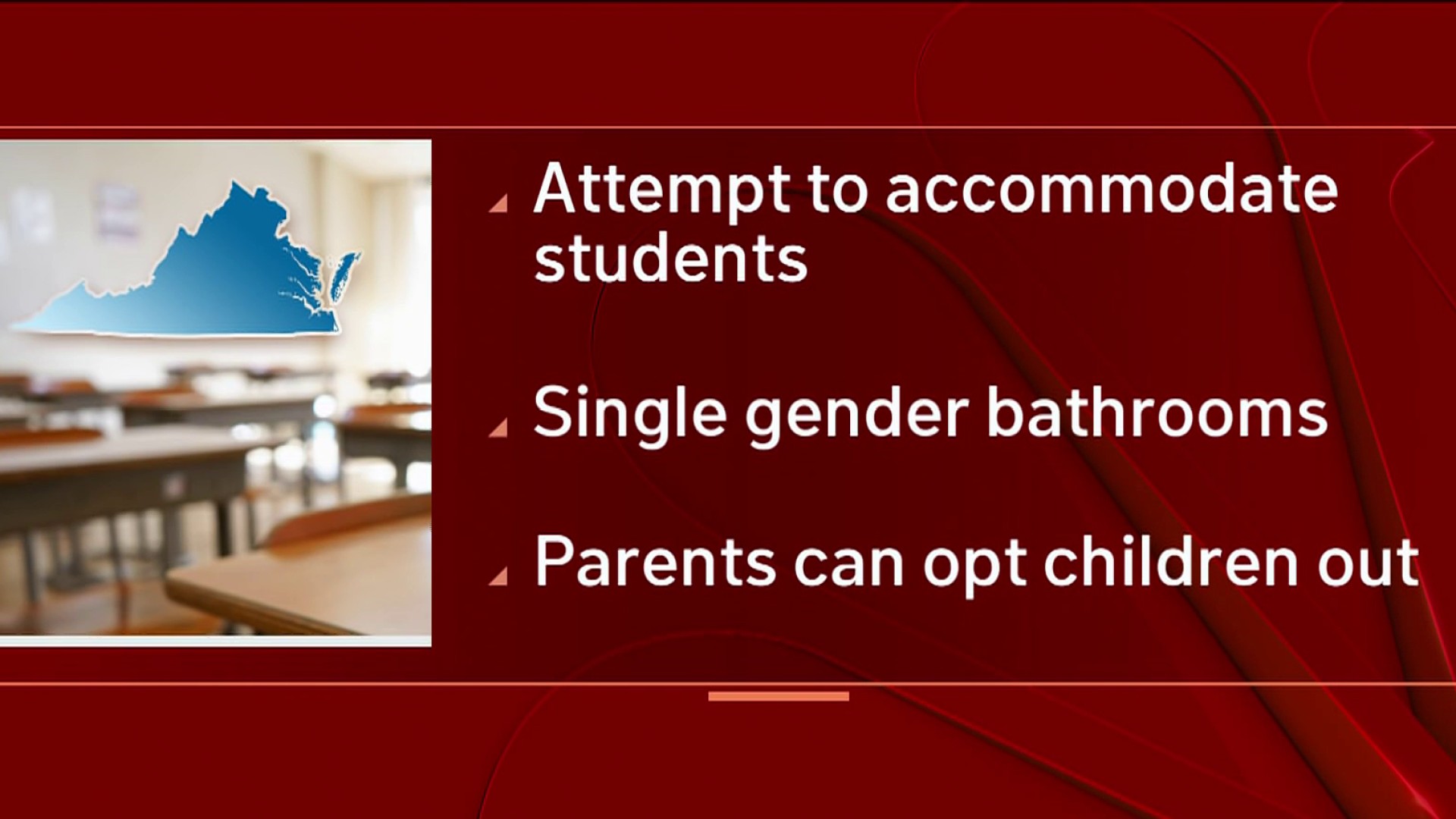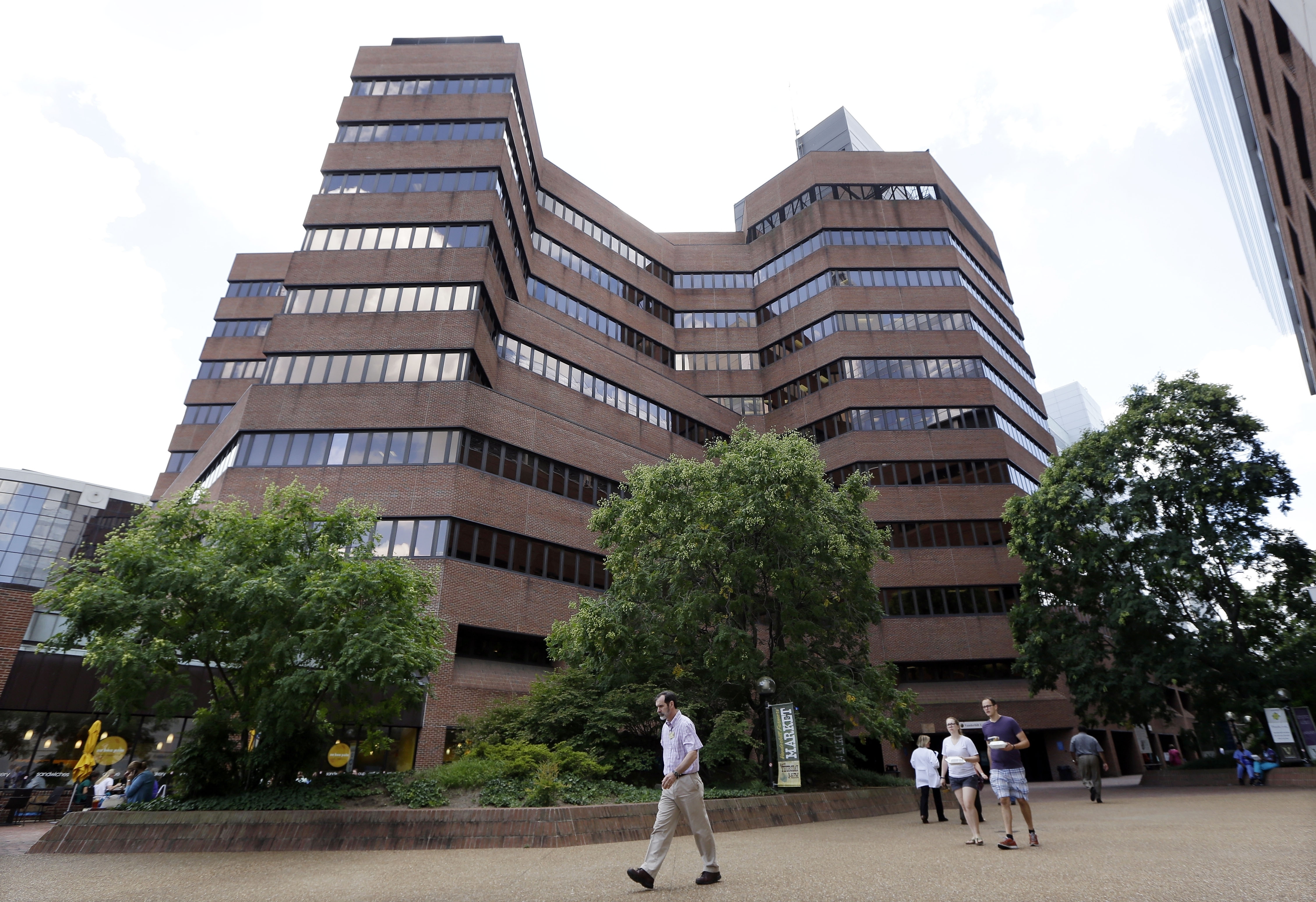Gov. Glenn Youngkin's administration announced a controversial new education policy for Virginia public schools on Tuesday afternoon, affecting the way transgender students are treated.
The administration's updated "Model Policies on Ensuring Privacy, Dignity, and Respect for All Students and Parents in Virginia's Public Schools" runs counter to the plans some school districts have put in place in recent years.
Youngkin made it very clear in his campaign, and in the executive orders that followed when he was elected, that he felt what he calls "parent's rights" were ignored and disregarded by his predecessor Gov. Ralph Northam's administration.
Northam implemented policies that caused some Northern Virginia school districts to let students decide what names and pronouns to use in class without “any substantiating evidence." Teachers were required to abide by those decisions.
We're making it easier for you to find stories that matter with our new newsletter — The 4Front. Sign up here and get news that is important for you to your inbox.
Youngkin's new model policies put control of how students express their gender identity back in the hands of parents.
The model policies document refers heavily to constitutional amendments focused on civil rights and civil liberties in making its argument.
"These 2023 Model Policies reflect the Department’s confidence in parents to prudently exercise their fundamental right under the Fourteenth Amendment and Virginia law to direct the upbringing, education, and control of their children," the document reads in part. "This primary role of parents is well established."
"These 2023 Model Policies adhere to the First Amendment," another part of the document reads.
"The First Amendment forbids government actors to require individuals to adhere to or adopt any particular ideological beliefs. Practices such as compelling others to use preferred pronouns is premised on the ideological belief that gender is a matter of personal choice or subjective experience, not sex," the document continues.
"Many Virginians reject this belief."
"Additionally, the First Amendment guarantees religious freedom and prohibits compelling others to affirm ideas that may be contrary to their personal religious beliefs."
You can read the 2023 model policies document by clicking this link.
Some of the requirements of schools included in the revised model policies include:
- Parents decide what pronouns, and what names, their children use at school: School employees "shall refer to each student using only (i) the name that appears in the student’s official record, or (ii) if the student prefers, using any nickname commonly associated with the name that appears in the student’s official record." The only way for students to change their name in the school's official record is if a parent -- or student age 18 or older -- submits a legal document showing the name change or sex change.
- Schools must keep parents informed of all aspects of a child's health, social and psychological development: This includes a policy stating that "parents must be informed and given an opportunity to object before counseling services pertaining to gender are given." Another policy states that parents can request the school district "designate an administrator or counselor to speak, together with the student’s parents... with any student regarding questions pertaining to gender," except for students age 18 and older.
- Schools must attempt to accommodate students with regards to bathrooms, locker rooms and any sleeping arrangements that are traditionally split by gender: "Single-user bathrooms and facilities should be made available in accessible areas and provided with appropriate signage, indicating accessibility for all students," the policy document states.
- Parents can opt children out of gender-specific bathrooms if federal or state law requires schools to allow transgender students to share "otherwise sex segregated facilities" like bathrooms.
- Activities are split by biological sex at birth, rather than gender identity: "For any school program, event, or activity (including extracurricular activities) that are separated by sex, the appropriate participation of students shall be determined by sex rather than gender or gender identity."
The 2023 policies were immediately slammed by Equality Virginia, which describes itself as "the Commonwealth’s leading advocacy organization for lesbian, gay, bisexual, transgender and queer (LGBTQ+) equality."
"Today, Governor Youngkin and the VDOE made a dangerous, politically motivated decision to ignore the thousands of Virginians who submitted public comments in opposition to his proposed model policies – policies which single out transgender and nonbinary youth in our schools," Narissa Rahaman, executive director of Equality Virginia, said in a news release.
The 2023 model policies are a revision of policies first released in 2022.
At the time, those policies drew praise from conservative lawmakers and advocacy groups, while Democrats, the Virginia Education Association and LGBTQ advocacy groups said the policies would harm vulnerable children.
Democratic Del. Mike Mullin, after the release of the original policies, tweeted that it “calls for the misgendering and outing of children in schools where they’re supposed to be safe. Absolutely shameful."
In September 2022, crowds of Virginia students walked out of Northern Virginia schools in protest of the original model policies.
Some 70,000 comments were also sent to the Youngkin administration after the initial 2022 model policies were rolled out.
But groups like Equality Virginia say those comments, and best practices for education, were disregarded in the administration's revision.
On the same afternoon that his administration released the 2023 model policy, Youngkin released a statement.
"All children in Virginia deserve to have a parent engaged in their life and to be treated with dignity and respect," Youngkin's statement reads in part. "The VDOE updated model policies reaffirm my administration's continued commitment to ensure that every parent is involved in conversations regarding their child's education, upbringing and care."
The model policy goes into effect immediately upon release, but it's an open question how long school districts have to absorb the changes and retool the changes made during the Northam administration.
The new model policy does not set a specific date or deadline.
On Tuesday evening, Fairfax County Public Schools released a statement, saying the district is in the process of reviewing the document but will remain inclusive for all students.
"We are aware of the Virginia Department of Education’s release of its model policies and we are reviewing the document," FCPS said. "FCPS Superintendent, Dr. Michelle Reid, confirms that 'FCPS remains committed to an inclusive learning environment for each and every student and staff member including those who are transgender or gender expansive. Our schools will continue to be safe and respectful learning spaces.'"
Sign up for our Breaking newsletter to get the most urgent news stories in your inbox.




